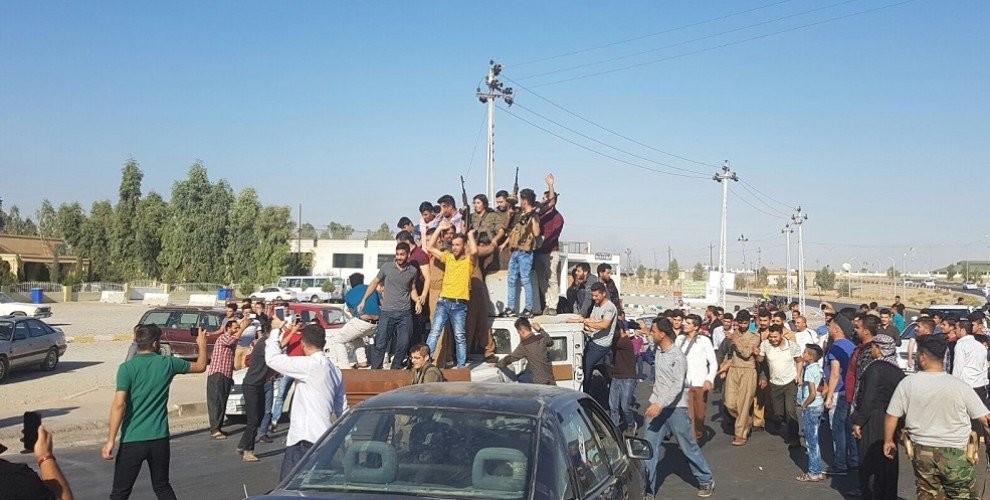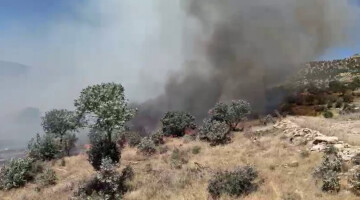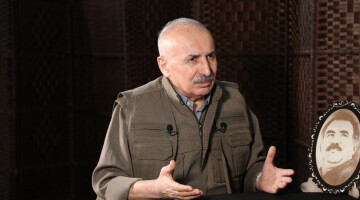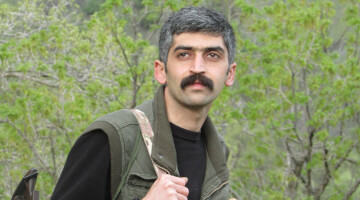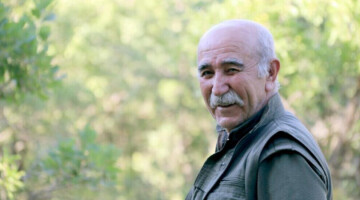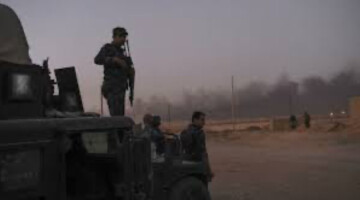The co-presidency of Kurdistan Communities Union (KCK) released a statement on the recent developments in Southern Kurdistan.
KCK’s statement read as follows:
“We condemn the approach of solving the problems by military means instead of dialogue in Kirkuk and Shengal, and declare that we will never accept such aggressive attitudes against our people. The continuing Third World War centred in the Middle East has reached a level in which the new balances of power and status quo will be determined. For this reason, anti-Kurdish powers have increased their attacks to prevent the Kurds from having an influential place and gaining a status in the new balances.
The recent developments proved that the main problem in the Middle East is the Kurdish question. Turkey’s genocidal policies and attacks in Northern Kurdistan, hostility against Rojava Kurds, continuous attacks to prevent Kurds from attaining a free and democratic life in Rojava, the attempts to expel the Kurds from Kirkuk, and attack against Êzidî lands by the Iraqi army affiliated Hashd al-Shaabi do clearly manifest this reality.
Kirkuk was attacked on the grounds of the independence referendum which was not based on national unity and the parliament - the will of people – and was held without a calculation of possible outcomes and taking any precautions. The Turkish state’s and AKP’s policy of gathering the anti-Kurdish parties together and pointing Kurds, especially Kirkuk as a target, has given its first results with the attack against Kirkuk.
In the face of these aggressive approaches, the Federal Administration of Southern Kurdistan and the peshmergas retreated from Kirkuk and various Kurdish cities without resistance. HPG guerrillas and civilian volunteers didn’t leave the city until the last moment and defended the people. But Southern Kurdish forces in possession of heavy weaponry didn’t support this resistance.
One day later the positions which YBŞ and HPG guerrillas had left to KDP to avoid a conflict in and around Shengal were handed over to Hashd al-Shaabi forces without any resistance. While taking these steps KDP didn’t have any talk and dialogue with the self-defence forces of Kurdish people, the guerrillas and our movement.
In the military and political environment created by Third World War in the Middle East, recent developments in Syria and Iraq that concern the Kurds closely and the ongoing war in Northern Kurdistan increased the urgency of achieving Kurdish national unity and developing national attitude.
Aside from national congress and national unity, the lack of dialogue and common stance concerning important issues already creates a great weakness for the Kurds and leads to negative results. In this regard, all Kurdish political groups should urgently come together and develop a common stance with regard to the developments that could create threats and dangers for the Kurds.
It's obvious that Kurds will face the same problems in the future like those they are facing in Kirkuk, Shengal and Rojava today. As the main problem in the Middle East is the lack of solution to the Kurdish question, Kurds will face a lot of problems during Third World War’s process of disambiguation of the new balances. Therefore the dialogue and relations among Kurds have become more important than ever.
The reason behind the lack of solution to the Kurdish question and attacks against the Kurds is the lack of a democratization process in the Middle East. Hence the path of a solution passes basically through democratization. The nationalist, nation-state based approaches make the problems worse rather than solving them. The referendum in Southern Kurdistan showed us that nationalistic and statist approaches will not solve any problems. The only way to solve Iraq’s problem is to struggle for the democratization of Southern Kurdistan and Iraq. Searching for another way rather than the democratization of the countries and the Middle East as a whole, is a delusion and won’t yield any results other than aggravating the already existing problems. In this respect, those who struggle for freedom and democracy should base on democratization grounded on democratic nation. This goes for all countries and peoples as much as it does for the Kurds.
The Kirkuk question can be solved within the frame of democratic nation approach and autonomy. Kirkuk is a city where Kurds, Arabs and Turkmens live together. Without saying “Kirkuk belongs to this group” or “Kirkuk belongs to that group”; establishing a system based on democratic nation and the brotherhood of peoples in Kirkuk can be a model for all Iraq and Southern Kurdistan. If we want Kirkuk to become a factor of peace and stability rather than a factor of conflict, this is the best model.
A significant part of Kirkuk’s Kurdish population was forced to leave the city after the attacks by Iraq and Hashd al-Shaabi. This is not acceptable. Kurdish people should return to Kirkuk and no political power or the state of Iraq should stand in front of it. If Iraq pursues a policy of changing the demographics of the city it will create a continuous tension and conflict. This won’t benefit any nation or any political power including the Kurds.
As Kurdish Freedom Movement we favour a free, autonomous and fraternal co-existence of the Kurdish people with Arab, Turkmen and Syriac peoples in Kirkuk. We will always make an effort and fulfil our responsibilities in order to help Kurdish people and the people of Kirkuk attain such a life. We will never accept de-Kurdification efforts on Kirkuk. The democratic public opinion and Kurds should be sensitive on this issue.
As the Kurdish freedom movement, like we said before the start of conflict in Kirkuk, our approach bases on the resolution of all problems in Iraq through dialogue and democratization. We will be preserving the same approach from now on, too.
Our Êzidî people in Shengal faced a genocide following the ISIS attack on 3 August 2014. Neither Iraqi central government nor Southern Kurdish Administration protected the Êzidî people. A centralist administration like the old one will not eliminate the risk of another genocide against Êzidîs.
For this reason, the Êzidîxan Council should be autonomous and the region should be defended by Êzidî defense forces. Kurdish Freedom Movement will continue to fulfil its responsibilities in order for Êzidîxan to have an autonomous administration and self-defence.
Our people should be aware towards all attacks against themselves, and be sensitive on the attainment of a free and democratic life by the Kurds and other peoples in Kirkuk. Kurdish people should increase the level of solidarity with Êzidî people against the attacks on Êzidîxan and should stand up to stand by the Êzidîs.”

